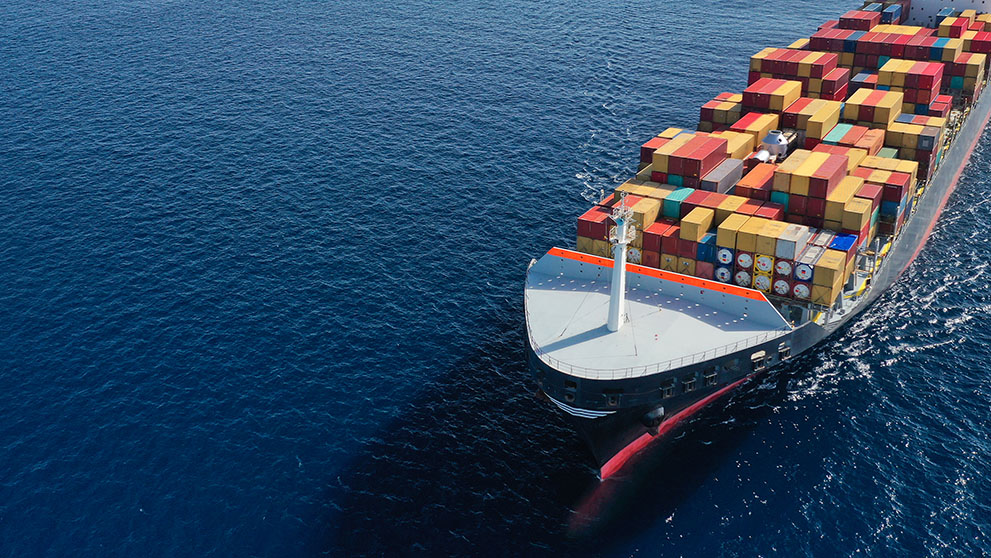
Australia’s export industry has faced a number of challenges in 2021 – from border and port closures, and a continuing shortage of commercial air cargo capacity, to record growth in online shopping and demand for cross-border delivery services.
However, Australian export businesses have bounced back, with confidence now at pre-pandemic levels.
Discover the business recovery strategies they plan to implement next year in order to connect with new customers overseas.
Key takeaways

“Enabled by interconnected global supply chains and digital technology, Australian businesses have persevered and continued to deliver for consumers, helping to keep some degree of normality throughout the pandemic.”
Gary Edstein, CEO & Senior Vice President, DHL Express Australia and Papua New Guinea
Confidence returns
Australian exporter confidence is back up this year with 69% of businesses sure their export orders will grow in the coming year.
This is up from a record low of 47% in 2020 – a positive sign that business prospects are recovering.
COVID-19 adds new challenges
In light of the pandemic, the most common barriers encountered by exporters included:
- Supply chain issues (43%)
- International travel restrictions (43%)
were more likely to impact businesses exporting to China,
Hong Kong, Africa and South & Central America
As businesses experienced more export activity in 2021, the number of those facing traditional exporting challenges returned to levels similar to pre-pandemic times:
25%
Transport & logistics
25%
Tariffs
23%
Exchange rates
27%
of exporters had no challenges apart from COVID-related issues
Recovery expected in 2022
A third of businesses saw an increase in export revenue this year, and 13% of these experienced significant increases.
At the other end of the spectrum, 48% had a drop in revenue as a result of COVID-19, including one in four (23%) that suffered significant declines.
Among those affected, 59% predict to recover by the end of 2022.
A further 11% say recovery will not be complete until 2023 or later.
Focusing in on export markets
Businesses this year exported to an average of 3.8 overseas markets, down from 4.4 in 2019. The most common export destinations were:
Zealand 58%
North
America
52%
Europe
39%
UK
38%


New markets to target for 2022
The most popular destinations export businesses will be looking to target in 2022 include:
New
Zealand
21%
North
America
19%
Europe
18%
UK
18%
Traditionally smaller export markets have also seen positive moves, with more businesses indicating their intention to explore expansion plans next year:

E-commerce proves powerful
This year, in line with the surge in popularity of online shopping, more businesses are generating orders via online channels.
82%
of all exporters now
use e-commerce,
up 8% on last year
SOHOs
are more likely to be online, with 86% generating their sales via the web
1/3
Close to a third of all export businesses make 100% of their revenue online – and SOHOs are more likely to be online only businesses

“One positive is that COVID-19 has forced exporters to embrace e-commerce, which had a slow uptake pre-pandemic. It has also led to a big increase in the number of entrepreneurial SOHO exporters who have had to be creative amid pandemic restrictions.”
Tim Harcourt,
Industry Professor and Chief Economist at Institute for Public Policy and Governance (IPPG), University of Technology Sydney (UTS)
New strategies drive
e-commerce sales
Export businesses that reported revenue growth this year were more likely to actively participate in strategies to grow online orders.
In the coming year, businesses say they are planning to take action to:

Spend more on online marketing
(40%)

Improve website design
(34%)

Improve fulfilment & delivery
(29%)

Improve customer service
(26%)
Reaching new customers online
Social media continues to be the top sales channel, with 6/10 exporters using these platforms to attract customer orders – up from 47% in 2020.

Social media channels, with Facebook the most popular
(65%)

Online
advertising
(34%)

Online marketplaces
(29%)

Influencers & content creators
(17%)
About the DHL Export Barometer
Since launching in 2003, the DHL Export Barometer has been an independent annual indicator generating industry-specific insights for Australian exporters by examining the issues directly affecting export businesses, including latest trends and fast-paced changes in overseas markets.
The 19th edition was conducted by ACA Research, and surveyed 1,438 Australian export businesses from the databases of DHL Express Australia and the Export Council of Australia between 1-22 September, 2021.
Businesses ranged from small operations with fewer than five employees to large organisations with more than one hundred staff.
WANT TO EXPAND YOUR BUSINESS OVERSEAS?
Apply for an international business shipping account today and our team will be in touch to get you started.
- Worldwide coverage in 220+ countries and territories
- On-time express delivery for export and import
- Innovative shipping & tracking tools
- Upfront door-to-door pricing























